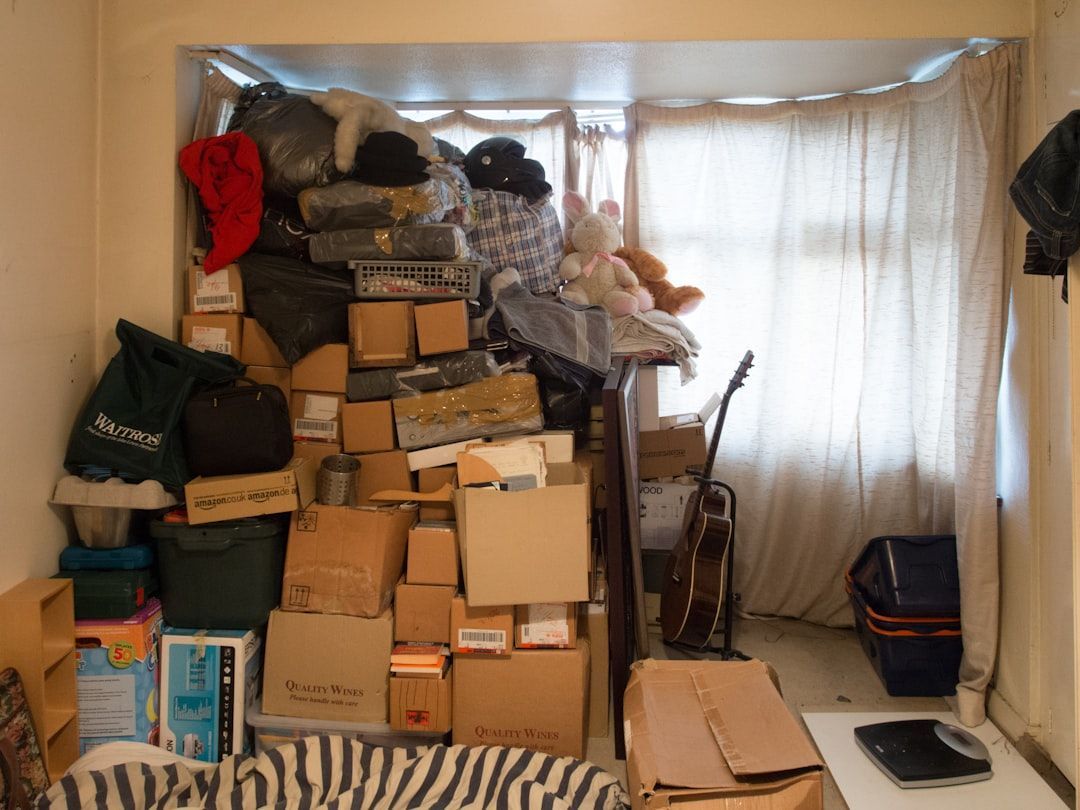How to Properly Store a Boat in the Winter
Alright, so winter's coming, and if you've got a boat, you know it's not just a case of parking it and forgetting about it until spring. Leaving your boat out in the cold without a little TLC can lead to some real headaches and costly repairs down the road. Think freezing water expanding in pipes, or moisture getting into the engine. Nobody wants that surprise when the weather finally warms up. Proper winter boat storage Campbellsville is all about taking a few smart steps now to make sure your boat is ready to go when the sun comes back out. Let's get your boat tucked away safe and sound.
Key Takeaways
- Thoroughly clean your boat, inside and out, and apply a fresh coat of wax to protect the finish from the elements.
- Address engine maintenance by changing the oil and filters, flushing the cooling system, and using fogging oil to protect internal parts.
- Prepare the interior by removing all personal items, electronics, and any organic materials like fabric or leather to prevent mildew and damage.
- Choose a suitable storage location, whether it's indoor storage, a dedicated storage unit, or a well-prepared outdoor spot, and avoid leaving the boat in the water.
- Secure your boat with a proper cover, like shrink wrap or a custom boat cover, and regularly check on it throughout the winter, keeping it insured.
Prepare Your Boat for Winter Storage
Getting your boat ready for winter storage is a big job, but doing it right means less hassle when spring rolls around. Think of it as tucking your boat in for a long nap. You want to make sure it's comfortable and protected from the cold.
Clean Your Boat Thoroughly
First things first, give your boat a really good scrub down, inside and out. Get rid of all the salt, dirt, grime, and anything else that's accumulated over the season. This isn't just about making it look nice; it helps prevent corrosion and keeps things from getting nasty while it's sitting there. Don't forget to clean the hull, the deck, the cabin, and all the nooks and crannies. A good wash and wax can really go a long way in protecting the finish. While you're at it, keep an eye out for any little dings or cracks that might need a quick fix before winter really sets in. It’s a good time to check for any damage that could get worse in the cold.
Address Engine Maintenance
Your boat's engine is probably the most important thing to get right for winter. You'll want to change the oil and filters. Old oil can have acids in it that can eat away at the engine over time, so fresh oil is key. Also, you need to flush the cooling system with fresh water to get rid of any salt or gunk. If you're in a place where it gets really cold, running some antifreeze through it is a smart move to stop ice damage. A pro tip is to use fogging oil; you spray it into the air intakes while the engine is running briefly. This coats the internal parts and protects them from rust. It’s a bit messy, but it’s worth it.
Winterize the Fuel System
Condensation is the enemy of your fuel tank during storage. To fight it, you should fill the tank almost completely full. This leaves less air space for moisture to form. While you're at the fuel tank, it's also a good idea to change the fuel filter. And definitely add a good quality fuel stabilizer. This stuff keeps the fuel from breaking down and going bad, and it helps keep the fuel system clean. After adding the stabilizer, run the engine for about 15 minutes. This makes sure the treated fuel circulates through the entire fuel system, protecting all the lines and the engine itself. This is especially important if your boat uses E-10 fuel, which can absorb moisture more easily. You can find more tips on getting your boat ready for storage at boat preparation tips.
Taking these steps now will save you a lot of headaches and potential repair bills down the line. It’s all about preventative care to keep your boat in good shape until you can get it back on the water.
Protecting Key Components
Maintain the Battery's Health
Your boat's battery is like its heart, and you don't want it to skip a beat over the winter. Disconnecting the battery is the first step to prevent it from draining completely. Once disconnected, give it a good charge. It's also a smart move to clean the battery terminals and give them a light coating of grease. Store the battery somewhere warm and dry, not in the boat itself. Think about giving it a little top-up charge every month or so during the winter. This simple routine will make sure your battery is ready to go when spring rolls around.
Lubricate All Moving Parts
Winter air can be harsh, and metal parts can seize up if not properly cared for. Take some time to grease up your steering system and any other control mechanisms. You'll want to apply a moisture-displacing lubricant to all the metal bits that move, like hinges, latches, and linkages. Don't forget to detach the propeller, check it for any damage, lubricate it, and then put it back. This attention to detail keeps everything running smoothly for the next season.
Seal Exhaust Ports
This might seem like a small detail, but it's a big one for keeping critters out. If your boat has exhaust ports, seal them up with some sturdy duct tape. This simple step stops pests like rodents or insects from making a cozy home inside your engine or exhaust system, which could cause a real mess and damage.
Taking care of these key components before storage is like giving your boat a good night's sleep. It prevents damage from the cold, stops corrosion, and keeps pests from causing trouble. It's all about making sure your boat is in great shape when you're ready to hit the water again.
Remember to also check out how to winterize your fuel system to keep that part of your boat in top shape.
Interior Preparations for Storage
Now that the engine and fuel systems are sorted, let's talk about what's happening inside your boat. You don't want to open her up in the spring to find a musty mess or worse. Taking a little time now saves a lot of headaches later.
Remove Sensitive Materials and Valuables
First things first, clear out anything that doesn't belong on the boat permanently. This means taking out all your personal gear, electronics like fish finders or GPS units, and anything else that could be damaged by cold or moisture. Think about things like life jackets, fire extinguishers, and flares too – they're better off stored in a dry, climate-controlled spot at home. Leaving valuables behind is just asking for trouble.
Prevent Mildew and Odors
This is a big one. Any fabric or leather inside your boat can become a breeding ground for mold and mildew when it's just sitting there. It's a good idea to remove cushions, curtains, and any other soft furnishings. If you can't remove them, at least make sure they are completely dry and consider placing moisture absorbers or dehumidifiers inside the cabin. This will help keep things smelling fresh for the next season. You can find good moisture absorbers at most marine supply stores.
Secure the Interior
Once everything is out and clean, make sure all cabinets and drawers are closed and secured. This prevents them from rattling around and potentially opening during transport or if the boat shifts. Also, check that any hatches or ports are properly sealed to keep out moisture and pests. It’s a good idea to leave a few vents open if you’re storing indoors, but if you’re storing outside, you’ll want everything sealed up tight. Consider using a breathable boat cover to allow for some air circulation while keeping the elements out. Proper boat covers can make a big difference.
Leaving anything organic, like food scraps or damp towels, inside is a recipe for disaster. Vermin love that stuff, and it'll just create more work for you come spring.
Choosing the Right Storage Location
Choosing the right spot for your boat during the off-season is a big deal. It's not just about finding a place to park it; it's about protecting your investment from the harsh winter elements. You've got a few main paths you can go down, each with its own set of pros and cons.
Consider Indoor Storage Options
Indoor storage is generally the gold standard for winter boat storage. Think of it like parking your classic car in a garage instead of leaving it out on the street. Your boat is shielded from sun, snow, rain, and extreme temperature swings. This usually means less wear and tear on everything from the hull to the upholstery. The downside? It's typically the most expensive option. You might also have to arrange for transport to and from the storage facility, as boats are often stored on high racks. Still, for keeping your boat in tip-top shape, it's hard to beat.
Best Practices for Outdoor Storage
If indoor storage isn't in the cards, outdoor storage is your next best bet. This can mean a few things. You could store it on a trailer in your yard or a dedicated lot. Some facilities offer covered outdoor storage, which provides a bit more protection than being completely exposed. The key here is a really good boat cover. Make sure it's breathable to avoid moisture buildup and fits snugly to prevent wind from getting underneath and causing damage. You'll also want to make sure the area is secure and perhaps elevated if you're prone to flooding. Storing your boat at a marina on a boat lift, out of the water, is another outdoor option. It's convenient for spring launch but still leaves the boat exposed to the weather.
Risks of Leaving Your Boat in the Water
Honestly, leaving your boat in the water over winter is generally a bad idea. It's convenient if you plan on using it frequently, but for long-term storage, it's asking for trouble. The constant exposure to water can lead to issues with algae and bacteria growth, which means more cleaning and potential damage to the hull. Plus, you're more vulnerable to damage from ice expansion or even other boats if you're at a marina. It's just not worth the risk to your boat's condition and can be quite costly in the long run. It's best to get your boat out of the water and onto dry land for the cold months. You can find more information on boat storage options.
When you're deciding where to store your boat, think about your budget, how much protection you need, and how accessible you want your boat to be. Each choice has trade-offs, so weigh them carefully before making a decision.
Covering Your Boat for Protection
Alright, so your boat is clean, the engine's all set, and the battery's disconnected. Now comes the part where we actually protect it from whatever winter decides to throw at it. This is where a good cover really makes a difference, keeping out the dust, the rain, and frankly, anything else that might try to sneak in and cause trouble.
The Benefits of Shrink Wrapping
Shrink wrapping is pretty popular for a reason. It's like giving your boat a custom-fitted, plastic suit of armor. When done right, it seals out moisture and pests really effectively. Plus, it's tough enough to handle snow and ice without collapsing. It's a bit of an investment, sure, but it can save you a lot of headaches down the line. If you're not doing it yourself, make sure you get a professional to do it; they know how to get it snug and allow for some ventilation so moisture doesn't get trapped underneath. You can find some good options for shrink wrap kits online if you're feeling adventurous, but honestly, for most people, hiring someone is the way to go.
Using Custom Boat Covers
Custom boat covers are another solid choice. They're made specifically for your boat's make and model, so you get a nice, snug fit. Unlike a generic tarp, these are usually made from breathable materials that let any trapped moisture escape, which is super important for preventing mold and mildew. They often have features like quick-release buckles and elastic hems, making them easier to put on and take off. Think of it as a tailored winter coat for your boat. A good quality cover will last for years, protecting your investment season after season. We found some great Seal Skin boat covers that offer a secure and hassle-free fit with easy installation and removal. They feature quick-release buckles and elastic hems for convenience.
Securing Your Boat Cover
No matter what kind of cover you choose, the most important thing is to secure it properly. A cover that blows off in a strong wind is pretty much useless. For tarps, use plenty of bungee cords or tie-downs, making sure they're attached securely to the trailer or tie-down points on the boat itself. If you're using shrink wrap, it's already pretty tight, but you still want to make sure there are no loose edges that could catch the wind. For custom covers, use all the straps and buckles provided. It's also a good idea to create a high point in the center of the cover, maybe with a support pole, so that water and snow don't just pool on top and weigh it down. You want everything to shed off easily. A well-secured cover is your last line of defense against the elements, so don't skimp on this step.
Remember, the goal here is to keep your boat as dry and protected as possible. Any water or moisture that gets trapped can freeze, expand, and cause damage. So, take your time with the cover, make sure it's snug, and think about how water will run off it. It might seem like a lot of effort now, but it's way better than dealing with repairs come spring.
Final Checks and Ongoing Care
So, you've done all the big stuff – cleaned, winterized, and covered your boat. That's awesome! But we're not quite done yet. A few final steps and a bit of attention during the off-season can make a huge difference when spring rolls around.
Perform a Comprehensive Final Inspection
Before you officially seal everything up, give your boat one last once-over. It’s like a final pre-flight check, but for your boat. You want to catch anything you might have missed.
- Check for any stray items: Make sure no tools, cleaning supplies, or personal belongings are left behind. These can absorb moisture or become a snack for critters.
- Inspect all systems again: Briefly run through the engine (if possible and safe), check that all drains are clear, and confirm that any antifreeze is in place.
- Look for any new damage: Give the hull, deck, and any visible components a quick visual scan for cracks, loose fittings, or signs of wear that might have appeared during the preparation process.
This last look is your chance to spot anything that could turn into a bigger headache later. It’s better to find a loose screw now than discover it corroded in place come April.
Regularly Check on Your Stored Boat
Your boat isn't just going to sit there and be perfectly fine all winter. Things can happen, especially if it's stored outdoors. A little bit of regular attention can prevent small issues from becoming major problems.
- Visit your boat periodically: Aim to check in every few weeks, or at least once a month. This is especially important if your boat is outside.
- Clear off snow and debris: If you have an outdoor cover, make sure snow or fallen leaves aren't accumulating and putting extra weight on it, or worse, getting under it.
- Inspect the cover: Ensure the cover is still secure and hasn't shifted or torn. Check for any signs of pests trying to get in.
- Monitor for moisture: If you're storing indoors, a dehumidifier can be a lifesaver. Check its water collection and ensure it's running correctly. Even indoors, condensation can be an issue.
Ensure Your Boat Remains Insured
Don't forget about the paperwork! Your boat is a significant investment, and you want to make sure it's protected even when it's not in the water. Keeping your boat insurance up to date is a smart move. Check your policy details to make sure it covers your boat during the storage period, whether it's at home, in a storage facility, or even on a trailer. It’s a small detail that offers big peace of mind.
After you've settled your belongings, it's important to keep things tidy. Regularly check on your stored items to make sure everything is in good shape. If you need any tips or have questions about keeping your things safe, visit our website for helpful advice.
Wrapping It Up
So, there you have it. Taking care of your boat during the off-season isn't just about keeping it looking good; it's about making sure it's ready to hit the water when spring rolls around again. It might seem like a lot of steps, but honestly, doing this work now saves you a headache, and probably some cash, down the road. Think of it as an investment in future fun. Get it done right, and you'll be thanking yourself when the weather warms up and you're back out on the lake.
Frequently Asked Questions
Why is cleaning my boat so important before winter storage?
It's smart to give your boat a good scrub before storing it. Wash the outside, inside, and any metal parts. A fresh coat of wax also helps protect it from the weather. While you're cleaning, look for any cracks or damage and try to fix them before winter hits.
Should I disconnect the battery for winter storage?
Yes, you should definitely take out your battery. Leaving it connected can drain its power. Charge it fully, clean the terminals, and store it somewhere warm and dry. It's a good idea to recharge it a few times over the winter to keep it in good shape.
What parts of my boat need lubrication before storing?
To keep things running smoothly, grease all moving parts like the steering system. Also, lubricate any metal bits, such as hinges and latches. Don't forget to check and grease the propeller too.
What should I remove from the inside of my boat before storing?
It's best to remove everything that isn't part of the boat itself. This includes things like life jackets, electronics, seats, and any personal items. This helps prevent mildew, odors, and protects your valuables from extreme cold.
What's the best way to cover my boat for winter?
The best way to protect your boat is with a good cover. Shrink-wrapping offers excellent protection against weather, dust, and pests. A custom-fit boat cover is also a great option, especially if it allows for air to circulate. Make sure whatever cover you use is secured tightly.
Do I still need to insure my boat during winter storage?
Yes, you should keep your boat insured even when it's stored. Accidents can happen anytime, so having insurance protects you from unexpected damage or theft. It's a small cost for peace of mind.











